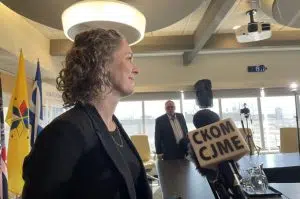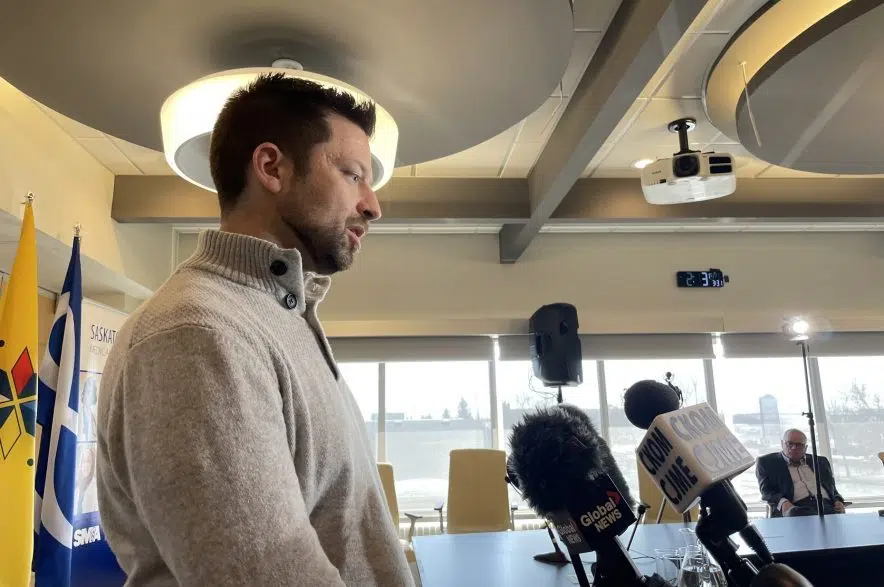In an effort to improve access to care in Saskatchewan for patients seeking help from a family doctor, the province is offering better compensation to physicians to incentivize extended hours.
On Friday, the Saskatchewan government and the Saskatchewan Medical Association (SMA) made the announcement about the new funding, though no specific dollar amount was attached. According to the plan, all community-based, fee-for-service family physicians will be eligible to get an extra $8 to $12 per visit service. The hope is that community-based family doctors will extend their office hours if they’re able to do so.
More money will also be offered to urgent care clinics that provide after-hours and urgent care services in the hopes of reducing crowding and wait times at hospital emergency rooms.
“Patients’ access to family physicians is a serious problem that we all care about and these measures – while not a comprehensive solution – will help with access while reducing the pressure on emergency departments,” Dr. John Gjevre, the president of the SMA, said in a media release.
Gjevre said there’s been a problem for a number of years with medical graduates not filling family physician positions in Saskatchewan — with only this year being the exception to the trend.

Family doctors observe as SMA persident John Gjever and Saskatchewan Health Minister Paul Merriman deliver an announcement and speak to media in Saskatoon on March 31. 2023. (Libby Giesbrecht/650 CKOM)
“We continue to work with the Ministry of Health on other, sustainable changes – including a new compensation model for fee-for-service family physicians and a move to family physician-led care teams in the community.
One option being considered is something between a straight salary and a straight fee-for service, according to Merriman.
“That type of reform takes time,” he cavated, mentioning conversations with physicians that need to happen as well.
“We believe strongly such changes will further help address the pressures our patients and family physicians are experiencing. We must retain the community of Saskatchewan family physicians providing full-service family medicine while ensuring Saskatchewan is an attractive place for future family physicians to work. We hope to see progress soon.”
The government is trying to recruit and retain health-care workers through its Health Human Resource Action Plan, which aims to add more than 1,000 health-care professionals to the provincial system over the next few years.
The government also recently increased payments under the Rural Physician Incentive Program, which offers up to $200,000 over five years to family physicians who agree to practise in rural and remote communities.
Carla Holinaty, an SMA board member and family doctor, said this proposal has been years in the making.
“We really wanted to make sure that we could capture the needs of the urgent care doctors and make sure we could get them an arrangement and a deal that works for them in a way that really, truly did recognize the care that they provide because it’s critical to the system,” Holinaty said.

Carla Holinaty, a family physician in Saskatoon and SMA board member, speaks to media at the Saskatchewan Medical Association on March 31, 2023. (Libby Giesbrecht/650 CKOM)
Family doctors are responsible for diverting tens of thousands of patients away from emergency rooms each year in Saskatoon, she explained.
Holinaty said the final plan is expected to be a tiered system, with compensation allocated based on the amount of services provided by the clinics.
She said the SMA has heard loud and clear from new medical school graduates that the fee-for-service model is not one they wish to work under, and consideration is being given to other solutions like a model that would see family doctors paid based on the number of patients they see and the services provided.
She added that other models would do more to cut back on “free work” being done by physicians — that includes paperwork and other tasks that could be completed by other individuals, leaving physicians to spend their time rendering medical services to patients.
Adam Ogieglo, a family doctor at Lakeside Medical Clinic in Saskatoon, said he’s thrilled to see this funding. It’s something he himself has been advocating for, as a doctor who himself works later hours at a clinic regularly.
We got Urgent Care funding in Saskatchewan!!!https://t.co/tpV93L4ZOl
— Dr. Adam Ogieglo (@AOgieglo) March 31, 2023
He called the compensation a step in the right direction and a bridge while further measures are brought in.
And though he called it a stopgap measure, Ogieglo said he sees this move as one that will bolster urgent care in the province.
He said the move will likely give people more access to clinics at times where they might otherwise have no other option than to go to an emergency room, though that might not have been the most appropriate course of action for their situation.
Ogieglo maintains that further reforms are needed, however.
While Ogieglo is hopeful more clinics might introduce extended hours, he noted that he has already been working extended hours for the entirety of his 11-year career. With his own urgent care clinic operating at only about 60 per cent capacity, Ogieglo hopes interest in the compensated pay and financial support for clinics will result in greater patient care in Saskatchewan.
Ogieglo said he would like to see the B.C. model implemented in Saskatchewan, though Merriman and Gjevre noted that one province’s system can’t just be transplanted from one province to the next. Ogieglo, however, relayed that a physician from B.C. currently working for his practice is now planning to return to the west coast to start up his own practice thanks to the recent changes benefitting physicians there.
“Activate those physicians,” Ogieglo urged the province.











